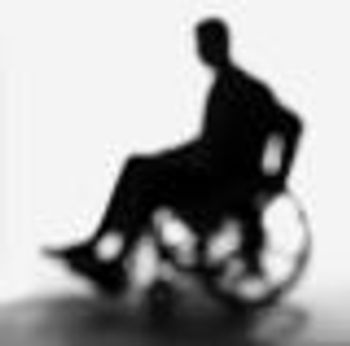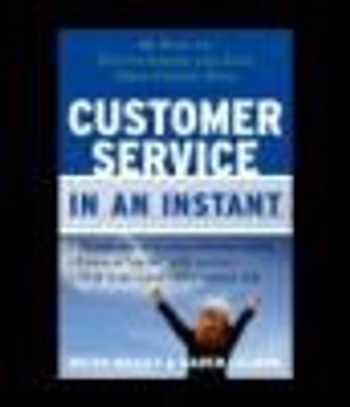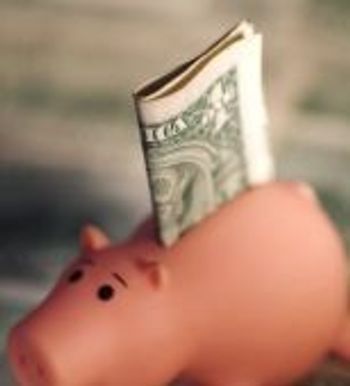
Occasionally, market volatility rears its ugly head. If your asset allocation is right to meet your unique needs and risk tolerance, you can comfortably ignore the day to day gyrations.

Occasionally, market volatility rears its ugly head. If your asset allocation is right to meet your unique needs and risk tolerance, you can comfortably ignore the day to day gyrations.

There are three types of disability policies: individual, group, and employer-sponsored. As the name suggests, individual disability insurance policies are purchased by individuals directly from the carrier; they provide long-term disability benefits in the event of sickness or injury.

With home values plummeting and stock prices in free fall, many baby boomers are taking a second look at their retirement plans. Many who had hoped to quit the workforce in a few years are looking at several more years on the job. According to one survey, more than a quarter of workers over age 45 say they are postponing planes to retire. In addition to the losses caused by the implosion of the nation's financial system, say some experts, the Boomers' post-retirement plans were the victim of unrealistic projections about future returns.

Imports of more than 30 generic drugs made by India's Ranbaxy Laboratories have been banned by the Food and Drug Administration, citing concerns about the safety of the company's production processes. The FDA also noted that it would not approve applications for any drugs that listed the Ranbaxy plants as a source of ingredients.

Real wealth used to start at $1 million in liquid assets. Now, it starts at $2 million, according to a recent WSJ article.* Everything is getting more expensive, even being classified as wealthy.

Perhaps the most effective thing you can do to prevent identity theft is to safeguard your Social Security number. Most consumer experts advise you not to carry your Social Security card in your wallet and never to give out the number unless you are absolutely sure of the organization you are giving it to and how it will be used. But what do you do if, despite your best efforts, a crook manages to steal your identity?

Attempts by officials in charge of the groundbreaking Massachusetts universal healthcare law to close the program's projected $130 million budget gap could run up against a federal lawsuit, according to the state's largest private employer. Partners HealthCare, which has been a prime supporter of the law, warned that new regulations aimed at boosting private-sector contributions to the program could be shot down by a federal court.

Because of the significant increase in disability claims filed by physicians over the last several years, insurance carriers are now scrutinizing the terms of their policies and any claims made thereunder, utilizing novel and creative theories when denying benefits. Physicians should familiarize themselves with their policies and the claims process.

Stock market statisticians are fond of spotting possible trends in the market's ups and downs. One trend that may or may not be relevant this year is the "presidential cycle." According to market history, stocks have risen in 9 of the past 11 presidential election years.

As the dust begins to clear in the aftermath of the Lehman Brothers bankruptcy, shaken investors who have accounts with the giant brokerage firm may wonder whether they too have been wiped out. Rest easy, say officials of the Securities Investor Protection Corp., who recently reassured Lehman clients that their accounts are safe.

It's often said that computers and their accompanying software are only as smart as they're programmed to be. But, when programmed appropriately, they can enhance operations and streamline costs for virtually any enterprise—and healthcare is no exception.

Most doctors thinking about retirement have two key questions. Doctors who are still in practice want to know if they're saving enough to retire comfortably; doctors who are already retired or close to retirement want to know how long their nest egg will last. There are several web sites where you can get answers to these questions, but one, ExperienceRetirement.com, has the virtue of simplicity.

You might be surprised at the amount of free stuff that's available—and it's not just junk. How about free TV shows and movies you can watch on your computer? Many of your favorites are available at www.hulu.com. You can choose from contemporary shows like The Colbert Report to classics like the Mary Tyler Moore Show, or choose from more than 160 full-length movies.

Learning how to identify the general direction the market is headed can save you from severe loss. You can read countless books and study complex systems for selecting stocks, but if you ignore market direction, even the best stock won't save you.

Perhaps the most frequently cited, yet underachieved, recommendation for the prevention of cardiovascular disease is to implement healthy lifestyle habits.

Financial experts generally advise investors to allocate their assets between stocks and bonds and to rebalance those assets at least once per year to keep to that allocation matrix. That may be sound advice, but some not-so-diligent investors are more inclined to "set it and forget it" than to take time to rebalance their portfolio. If pressed, they may claim that market forces will do the job for them automatically.

We showed that coronary heart disease (CHD) in a population of male health professionals could be prevented by the following healthy lifestyle, defined as not smoking, maintaining a healthy body weight, exercising daily, adhering to a healthy diet, and moderate alcohol intake. We also found that a healthy lifestyle was associated with a lower risk of CHD even among men taking lipid-lowering or antihypertensive medications.

With Hurricane Gustav producing flooding rains in Louisiana and Texas last week, it's a powerful reminder to homeowners that they should check on their flood insurance. Floods are the most common natural disaster in the US—the odds that a home will experience a flood during the span of a 30-year mortgage are 1 in 4, compared to a one in 25 chance of a fire.

Now that Labor Day is past, vacation crowds are thinning and many hotels and motels are lowering prices as summer vacationers head home. With gasoline prices dipping as well, you can save some serious money on a Fall vacation if you pick a place that's close to home. In fact, if you draw a circle with a radius of 100 miles around your home town, you might be surprised at the number of interesting places in that area.

Physicians are trained to heal the body, but often, neglect to read the body. Body language, that is—theirs, and their patients'. And if you don't think that's important, consider that as much as 93% of all communication exchanges are non-verbal.

Credit unions enjoy several advantages that allow them to offer better deals to their customers. As non-profits, they pay no taxes, and as cooperatives, they don't have to make a profit for the benefit of their shareholders. And now, with many traditional banks on the financial ropes, credit unions can also make the claim that they're not selling off assets to pay for subprime loans gone sour. As a result, say credit unions, they can offer lower interest rates to borrowers and higher rates to savers.

"First, do no harm" isn't technically the Hippocratic Oath. Still, variations of this phrase have been used by medical schools for years as part of graduation ceremonies, and many doctors I speak with consider that mantra to be an important part of their mission.

With years of profligate spending behind and staggering liabilities for Social Security and Medicare ahead—plus the recent financial bailouts—the federal government will be hard-pressed to keep its commitments on promised benefits.

As the stock market stumbles in and out of bear-market territory, many buy-and-hold investors are gritting their teeth and hanging on, hoping that their stocks or funds that are now in the cellar will make a comeback. Market history tells you that it will happen eventually, but it also tells you that some of those turkeys will never be eagles again. So why not sell them?

If you could be highly confident that you could improve your investment returns by almost 2% per year while taking less risk, would you do it? Does it sound too good to be true? Does it sound like a con job? It isn't.

There is a wild animal deep in human's brains that is importantly related to investment decisions. It has a less than familiar name to non-physicians—the amygdala.

For many doctors, state and local taxes can be a key factor in their choice of where to retire. Unfortunately, many potential retirees don’t get past looking at the state’s income tax policy. It’s tempting to decide on one of the seven states that don’t have an income tax, without realizing that states with no income tax often generate revenue in other ways, like sales taxes or property taxes.

Murphy�s law proclaims that �If anything can go wrong, it will.� That�s not necessarily a pessimistic attitude; more likely it�s realistic, especially when it comes to disaster planning and preparation.

The rules governing IRAs let you take money out of your account, penalty- and tax-free, as long as you pay it back within 60 days. The idea behind that 60-day window is to give investors time to move cash from one IRA account to another. If you don’t put the money back within the 60-day limit, though, you’ll be on the hook for income taxes on the withdrawal, plus you’ll get socked with a 10% penalty if you’re under age 59½.

When companies provide employees with family health insurance coverage, the employees can include spouses and dependent children up to a specified age under the policy. Grown children, ex-spouses, parents, grandparents, boyfriends, girlfriends, and children of friends or neighbors are not allowed.